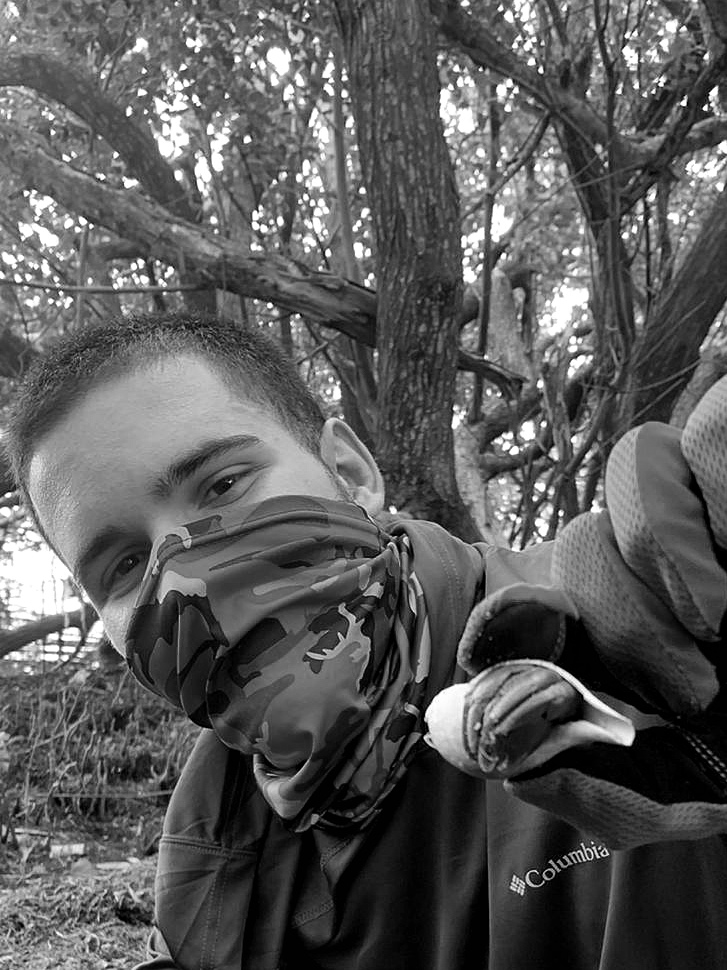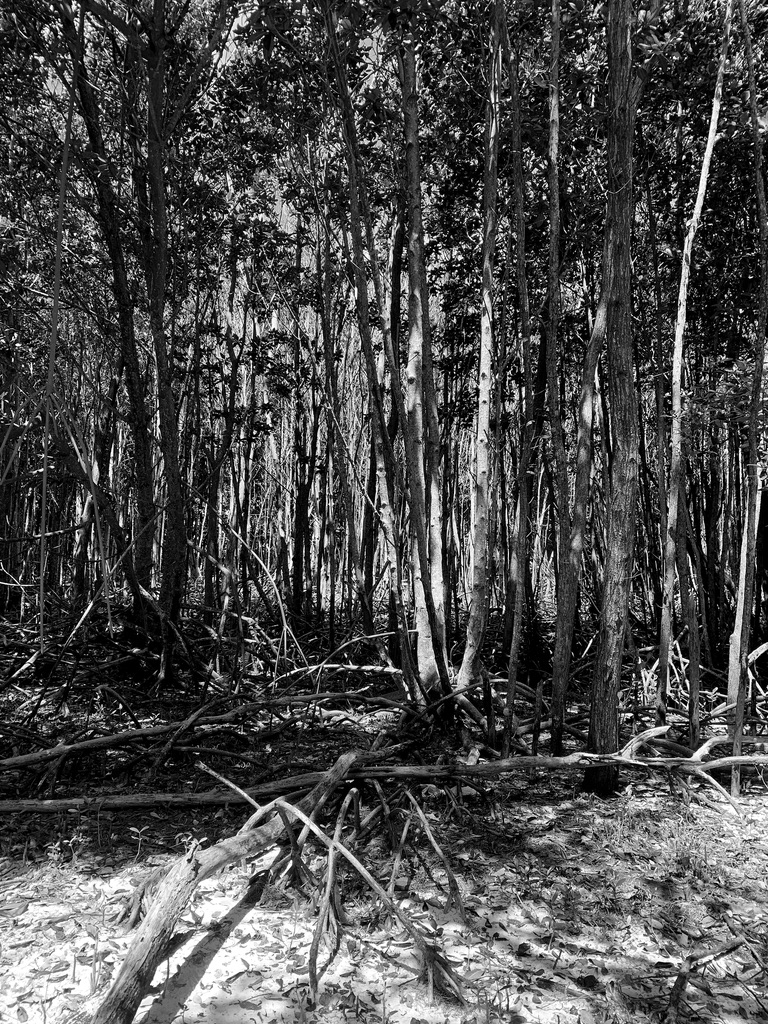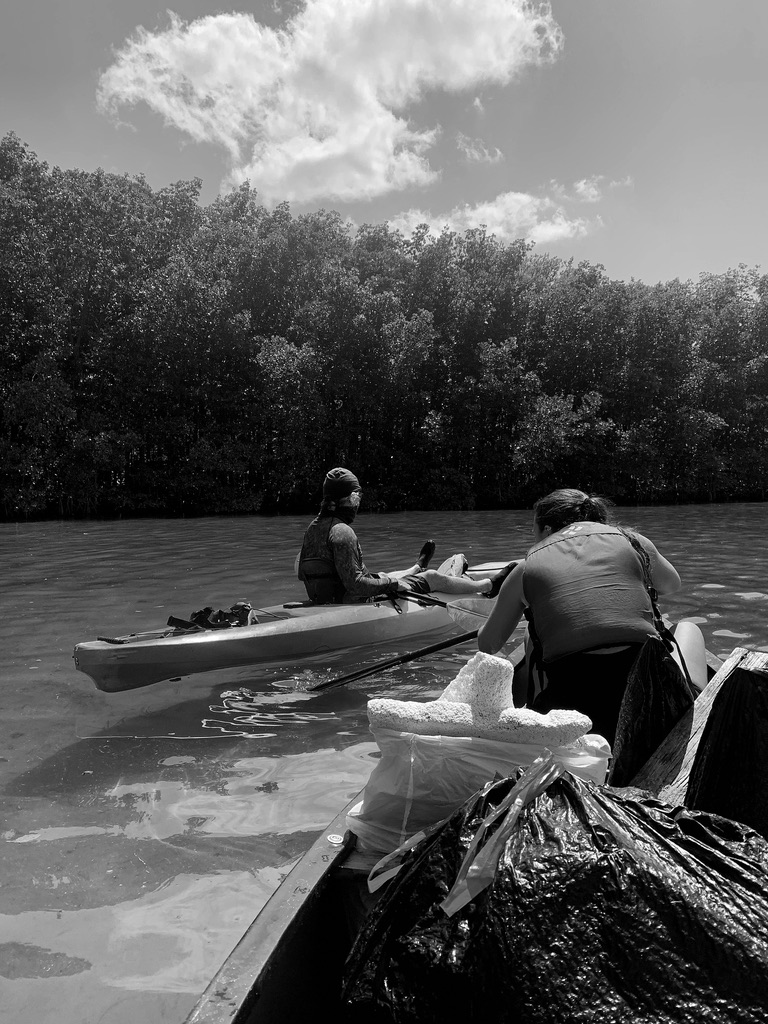Chicken Key

STUDENT BIO
Hi there! My name is Alfredo Bidopia and I am a junior studying Marketing with a certificate in Import and Export at Florida International University. I was born in Cuba, raised in Panama, and I have lived in the United States for five years. Something curious is that the three countries that I mentioned share the same colors on their flag. In my spare time, I like to paint, ride bicycle, and play guitar. I also love traveling and discovering new places. That is what motivated me to select the “Finding Miami” class. I hope that after taking this class I can see Miami from a wider perspective, and I can learn more about its history.
WHO
As honors students at FIU, we are required to do a certain amount of community hours. With the arrival of Covid-19, this became for me not a requirement but a necessity to go out and reclaim my life back from this virus. This activity wasn’t possible without the help of Deering Estate, our amazing TA Annette Cruz, and the mastermind of the project, John Bailly. John Bailly is an artist and a professor at Florida International University focused on teaching about the great things the city of Miami offers, other than the typical stuff residents may know. The purpose of the activity was simple, but that doesn’t mean it was easy. The class had to go in canoes from Deering Estate to Chicken Key which is almost a mile away. There we had to pick as much trash as we could, put it back in the canoes, and go back to Deering Estate.
WHY
This opportunity doesn’t relate to my major, but it is always important to be mindful of our environment and how we take care of it. Having the chance of going to Chicken Key made me realize how the stuff we wouldn’t think of ends up on the island. Our class found a lot of trash, but I can’t imagine all the trash professor Bailly saw taking a class there for the first time. I remember finding a toilet seat in the mangroves that surround the island. If it wasn’t for the continuous help of Deering Estate and professor Bailly the island would be in much worst condition. I am glad I had this opportunity because it opened my eyes and it made me want to contribute more to my community. Now I can say that doing this type of activity is an interest of mine.
HOW
Since the beginning of the semester, this opportunity has been part of the class schedule. Nevertheless, the day we were supposed to go to the island was postponed because of bad weather. This made me think that the class had lost this opportunity. However, professor Bailly was able to accommodate the class to a different date. This worked great for me because it was a win-win situation. I got to experiment traveling in a canoe for the first time and at the same time, I was able to help clean Chicken Key. I have learned and done amazing things with this class, but I wouldn’t trade this experience for anything.
WHERE & WHAT



The night of April 16, 2021, I started to get ready for the journey watching YouTube videos learning how to paddle with a partner. This was going to be my first time traveling in a canoe and I was very excited. I and some students came to a little early and professor Bailly showed us some small sharks that were swimming near the boat entrance of Deering Estate. At 10 am on April 17, 2021, the class was ready to sail in our adventure. Before setting our path to Chicken Key, professor Bailly took the class inside a canal full of mangroves. Turning inside that canal with a canoe was another experience by itself. On our way to Chicken Key, I comprehended how close the island felt from land but how far it felt when traveling there. The water was calm, and the day was beautiful, making the ocean look like a crystal. Before going to the water, I couldn’t stop thinking about the animals I might encounter while going to the island. However, for some reason I wasn’t afraid, I was just living the moment and thinking what a cool experience this was. When we arrived, the island was surrounded by mangroves, but our professor knew exactly where to take us. Entering the island, professor Bailly explained to the class what the purpose of our mission was and what we had to do. Something interesting is that the island was restored between 1996 and 1997, according to the website deeringestate.org, “The County restored Chicken Key, removing dredged materials, connecting the mangrove forest and dune syste
m, and re-creating the island’s original topography”. Walking around Chicken Key I was able to find some small pieces of plastic. As the professor said, it was important to pick up small pieces of trash too because of a story he told us about a whale that had died from a small piece of plastic. As I walked with my classmates, I kept collecting small pieces of plastic and other dangerous types of materials for the environment. Nonetheless, I couldn’t stop thinking about how the island looked cleaner than I thought. We stopped walking when we saw a small jungle of mangroves in the middle of the island. That’s when we decided to go back to the main point and take a break swimming in the waters of Biscayne Bay. After the break, some students and I decided to go back South of the island and cross the mangroves to see if we could find more trash. After passing the mangroves, I couldn’t believe what I saw. That side of the island was full of trash. We found bottles, shoes, sandals, a toilet seat, and many more things harming the ecosystem that shouldn’t be there. Just from that side of the island, we filled around 7 bags of trash. On our way back to Deering Estate, professor Bailly took the group in a different direction to appreciate the island and enjoyed it while we rested floating for a little bit. Going back to our starting point we noticed that the wind was not in our favor, making us paddle slower, plus we had the canoes filled with trash. When we arrived at Deering Estate, the rangers helped us take the canoes out of the water and we helped them throw away the trash we had collected.
WHEN

SUMMARY
Using a canoe for the first time to pick up trash harming the ecosystem of an island is something I didn’t think of doing before. Chicken Key was an experience I will never forget. Going to this place opened my eyes and made me see how bad we are taking care of our environment. Chicken Key represents to me the type of place we don’t think it’s there because we are so busy with our lives. We tend to forget about our surroundings and once we see the reality, it becomes impossible to ignore. This is an experience more people should live, to truly understand not only Miami but the reality of our environment.
CITATION
“Hiking Trails & Natural Resources.” Deering Estate, deeringestate.org/miami-hiking-trails-parks/.